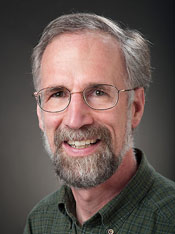UW-Madison scholar tapped to lead American Historical Association
University of Wisconsin–Madison historian William Cronon has been elected president of the American Historical Association, a position considered one of the highest honors in the profession.

Cronon
Cronon, the Frederick Jackson Turner and Vilas Research Professor of History, Geography and Environmental Studies, is a national leader in studying past human interaction with the natural world and is the first environmental historian ever elected to lead the association.
His election raises the visibility of UW–Madison’s long tradition of scholarship on the environment. Cronon was among the group of scholars who helped found environmental history, which has established itself as an innovative field that studies the human past in relation to the plants, animals, diseases and biophysical environments with which people interact.
“Cronon’s election speaks to the way in which environmental history has, over the last 30 years, become a very respected and exciting approach to history,” says Gregg Mitman, interim director of the Nelson Institute for Environmental Studies and William Coleman Professor of History of Science and Professor of Medical History and Science & Technology Studies. “It’s through a lot of Bill’s own work that the sub-discipline of environmental history has achieved such stature.”
Cronon’s work explores how people depend on the ecosystems around them to sustain their material lives, how they modify the landscapes in which they live and how ideas of nature shape the world around us.
“We’re at a moment in the history of the world when we’re ever more conscious of the scale of human impacts on the planet,” Cronon says. “This leads us to worry about what the future might be — and to ask questions about what happened in the past to bring us to this present moment.”
The debate about climate change, for instance, necessarily requires a study past trends.
“History is far more relevant to the environmental future than most people recognize,” Cronon says.
UW-Madison’s leadership in the study of the environment dates back more than a century. In addition to well-known figures such as Aldo Leopold and John Muir, UW President Charles Van Hise authored the first textbook on natural resource conservation in the U.S., and noted Wisconsin historian Frederick Jackson Turner, for whom Cronon’s chair is named, offered a land-oriented interpretation of the American frontier that shaped Cronon’s work.
Cronon heads UW–Madison’s Center for Culture, History and Environment, which brings together scholars from disciplines as diverse as anthropology, history and forestry to study environmental and cultural change throughout human history.
“There’s probably no other institution in North America that has the kind of breadth and depth of scholars, both faculty and graduate students, doing work in environmental history than UW–Madison,” Mitman says.
Turner was the first member of UW–Madison’s faculty to serve as president of the American Historical Association, which he led in 1910. Later, in 1954, Wisconsin’s Merle Curti was president of the group.
Cronon came to UW–Madison in 1992 after a decade as a professor at Yale University. He has a bachelor’s degree from UW–Madison, master’s and doctoral degrees from Yale, and a doctorate from Oxford University.
The American Historical Association, a Washington, D.C., nonprofit membership organization founded in 1884, works to promote historical studies and the collection and preservation of historical documents, as well as to set standards for the profession. The association now serves more than 14,000 historians of every historical era and geographical area.
Cronon will become president-elect starting in January, then serve his one-year term as president in 2012.




